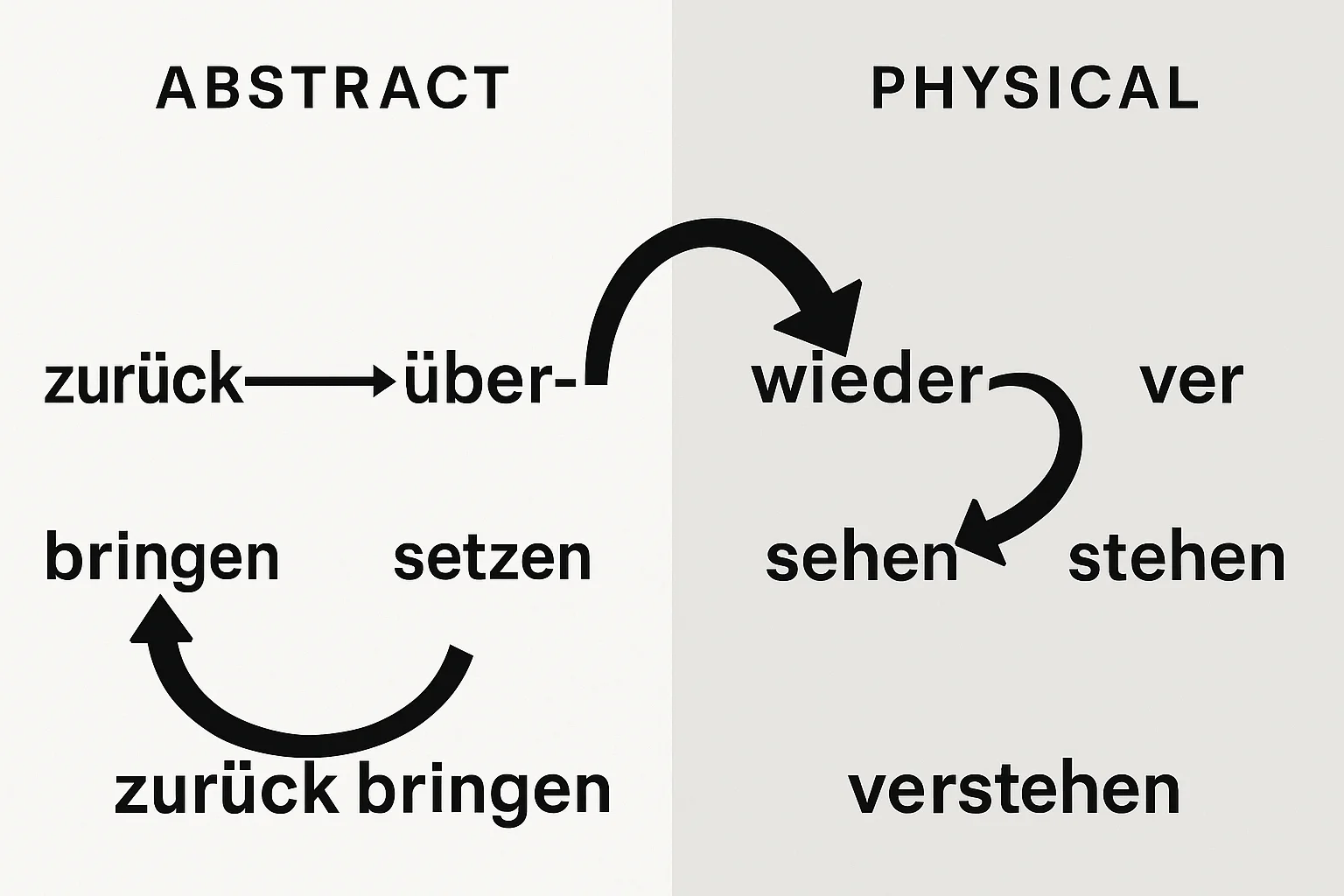Author’s Column — Tymur Levitin
Choose your language
Why Separable and Inseparable Prefixes Confuse Learners
German verbs with prefixes are often taught in dry categories:
- “These prefixes are always separable.”
- “Those are always inseparable.”
- “Here’s a list. Memorize it.”
That approach usually fails. It forces students to guess, not understand. The same prefix may behave differently — and suddenly the rules collapse.
Let’s look at two examples:
- wiedersehen – “to see again” → separable
- wiederholen – “to repeat” → inseparable
Same prefix. Different behavior. Why?
A Better Way: Listen First, Think Second
After 22 years of teaching, I rely on a two-part system that always helps students:
🎧 Step 1: Listen to the stress.
If the stress is on the prefix → it’s separable.
If the stress is on the root → it’s inseparable.
🧠 Step 2: Understand the meaning.
If the action is physical, directional → separable.
If it’s abstract, mental or verbal → inseparable.
It’s not a trick. It’s how the language actually behaves — even if most textbooks don’t explain it this way.
Let’s Hear the Difference
| Verb | Pronunciation | Meaning | Separable? |
|---|---|---|---|
| ǘbersetzen | stress on über | to ferry across | ✅ Yes |
| übersétzen | stress on setzen | to translate | ❌ No |
| wíederholen | stress on wieder | to retrieve | ✅ Yes |
| wiederhólen | stress on holen | to repeat | ❌ No |
| úmfahren | stress on um | to run over | ✅ Yes |
| umfáhren | stress on fahren | to drive around | ❌ No |
The Second Filter: Physical vs. Mental Action
Now apply logic:
- wiedersehen – “to see again” = physical event, possibly with movement → separable
→ Wir sehen uns morgen wieder. - wiederholen – “to repeat” = verbal action, no movement → inseparable
→ Könnten Sie das bitte wiederholen? - übersetzen –
- ferry across = physical transfer → ǘbersetzen → separable
- translate = mental processing → übersétzen → inseparable
The difference is real and meaningful.
Quick Table: How to Know
| Ask Yourself | If Yes → | Result |
|---|---|---|
| Is the stress on the prefix? | ✅ | Separable |
| Does the verb imply real-world movement? | ✅ | Separable |
| Is the action abstract or mental? | ✅ | Inseparable |
| Is the verb fused (no clear prefix)? | ✅ | Inseparable (e.g., verstehen) |
And What About Exceptions?
Yes — German has them.
It’s not a rigid system. There’s always a footnote:
“und viele andere Fälle.”
But here’s the truth:
❝German is not a language of fixed tables. It’s a language of tendencies — with many ‘und viele andere Fälle’.
That’s why understanding meaning and rhythm gives you more clarity than memorizing every possible list.❞
— Tymur Levitin
Why I Teach This Way
I don’t ask students to guess if a prefix is separable.
I show them how to hear it — and how to see its logic.
Grammar rules are important.
But learning a language means seeing the patterns — and trusting your ear.
Once you do, you don’t need to memorize prefixes anymore.
Explore More
- Learn German with us: https://levitinlanguageschool.com/studying-german-easy/
- Related article: Rethinking German Word Order: Cause ⇄ Effect and the Two Faces of “Trotzdem”
© Tymur Levitin — Founder, Director & Head Teacher
Levitin Language School / Start Language School by Tymur Levitin
Slogan: “Global Learning. Personal Approach.”
🔷 Rubric:
Translation Theory & Practice / Grammar Explained
🔗 https://levitinlanguageschool.com/translation-theory-and-practice/














